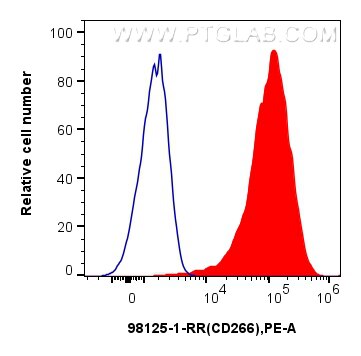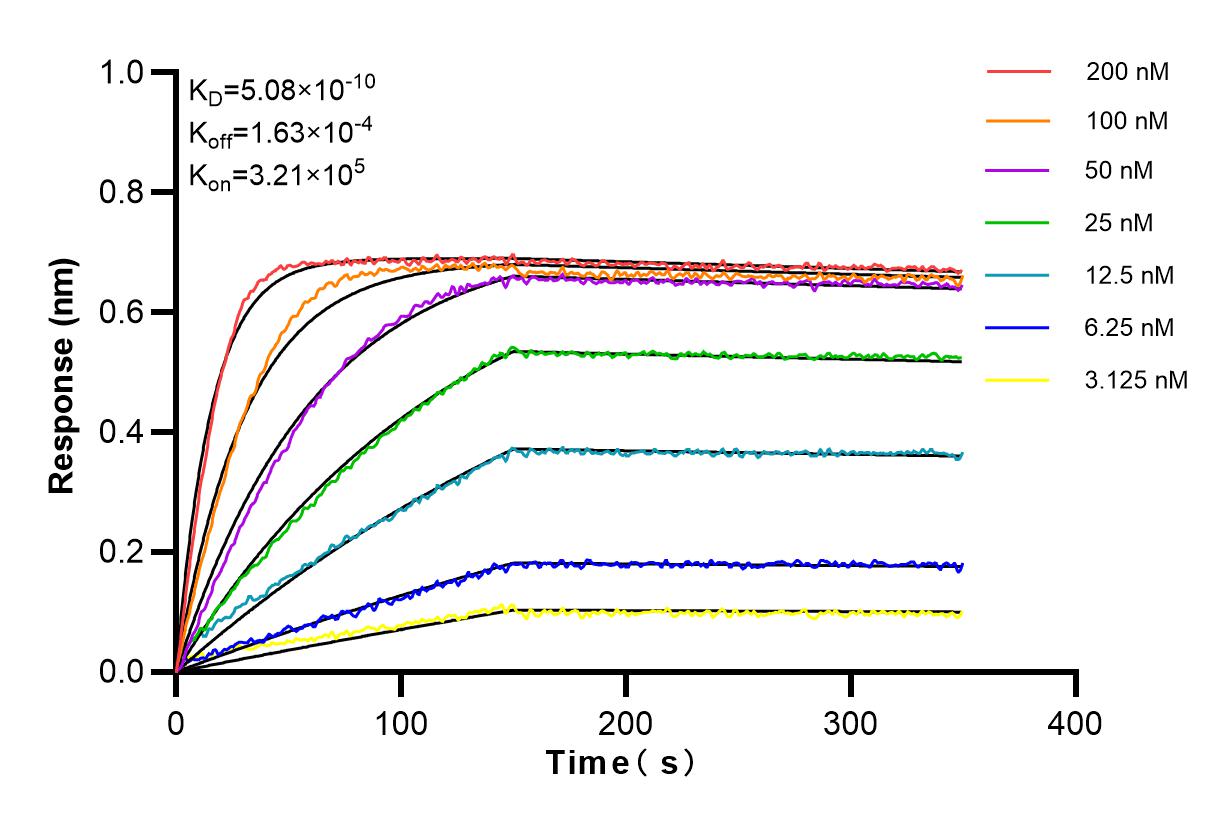Validation Data Gallery
Tested Applications
| Positive FC detected in | HT-1080 cells |
Recommended dilution
| Application | Dilution |
|---|---|
| This reagent has been tested for flow cytometric analysis. It is recommended that this reagent should be titrated in each testing system to obtain optimal results. | |
| Sample-dependent, Check data in validation data gallery. | |
Product Information
98125-1-RR targets TWEAKR/CD266 in FC applications and shows reactivity with human samples.
| Tested Reactivity | human |
| Host / Isotype | Rabbit / IgG |
| Class | Recombinant |
| Type | Antibody |
| Immunogen | TWEAKR/CD266 fusion protein Ag13823 相同性解析による交差性が予測される生物種 |
| Full Name | tumor necrosis factor receptor superfamily, member 12A |
| Calculated molecular weight | 129 aa, 14 kDa |
| GenBank accession number | BC002718 |
| Gene Symbol | TWEAKR |
| Gene ID (NCBI) | 51330 |
| RRID | AB_3672272 |
| Conjugate | Unconjugated |
| Form | Liquid |
| Purification Method | Protein A purfication |
| UNIPROT ID | Q9NP84 |
| Storage Buffer | PBS with 0.09% sodium azide , pH 7.3 |
| Storage Conditions | Store at 2 - 8°C. Stable for one year after shipment. |
Background Information
TWEAKR (also known as CD266, FN14, TNFRSF12A) is a member of the TNF receptor superfamily which is activated by its ligand, the cytokine TWEAK (TNFSF12). TWEAKR is the smallest member of the TNFR superfamily. TweakR was first described as an FGF-inducible gene that played a role in fibroblast adhesion and migration. Subsequently, the induction of TweakR expression by other growth factors and/or upon tissue injury was observed in multiple cell types, including hepatocytes, endothelial cells, adipocytes, and cardiomyocytes. (PMID: 23073510, PMID: 24409185)
Protocols
| Product Specific Protocols | |
|---|---|
| FC protocol for TWEAKR/CD266 antibody 98125-1-RR | Download protocol |
| Standard Protocols | |
|---|---|
| Click here to view our Standard Protocols |

